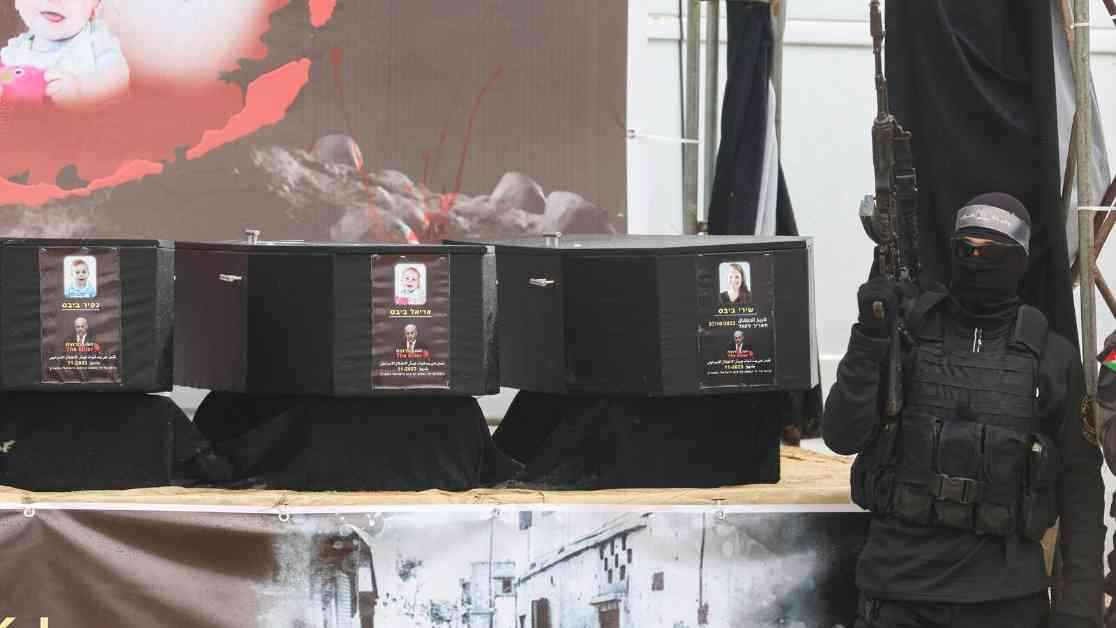The Israel Defense Forces (IDF) reported that one of the four bodies returned from Gaza to Israel on Thursday did not belong to a hostage, labeling it a “very serious violation” by Hamas. This incident comes as the latest in a series of deceased hostages being returned as part of a ceasefire agreement between Israel and Hamas. The four bodies identified were Oded Lifshitz, a journalist and peace activist, and Shiri Bibas and her two children, Ariel and Kfir Bibas. However, upon forensic analysis, the IDF determined that the fourth body did not match any known hostages.
Emotional Handover Ceremony
Red Cross officials received the four black coffins in a solemn ceremony in Khan Younis, Gaza, earlier that day. A Red Cross representative and a Hamas commander signed documents as part of the handover, emphasizing the gravity of the situation. The coffins were then brought to a stage where a banner declared in Arabic and English, “The Return of War = The Return of Your Prisoners in Coffins.” The emotional weight of the event was palpable as the families of the hostages awaited closure.
A poignant moment was captured as the bodies of the hostages were transferred from Gaza to Israel. The scene at the IDF-controlled Gaza buffer zone was a mix of sorrow and solemn respect as the bodies were transported across the border. The coffins were eventually taken to Israel’s National Center of Forensic Medicine in Tel Aviv’s Abu Kabir neighborhood for further examination.
The Human Cost of Conflict
The story of the Bibas family is a heartbreaking reminder of the toll of conflict. Kfir Bibas, the youngest hostage at just 8 1/2 months old, was taken by Hamas in 2023, along with his brother Ariel and mother Shiri. Tragically, both children were confirmed to have died in captivity, adding to the devastating loss experienced by their family. Yarden Bibas, the children’s father, was also among those kidnapped but was released earlier this month.
The grief and anguish felt by the families of the hostages are echoed in the statements released by Israeli Prime Minister Benjamin Netanyahu and the Hostage Families Forum. Their calls for privacy and respect during this difficult time highlight the need for compassion and empathy in the face of tragedy. The families also expressed their sorrow for the loss of other precious lives and the upcoming return of more deceased hostages.
As the ceasefire agreement progresses, with the second stage set to begin, the hope for peace and reconciliation remains a beacon in the midst of darkness. The families of the remaining hostages, civilians, and soldiers are eagerly anticipating their release, paving the way for a permanent cessation of hostilities between Israel and Hamas.
The negotiations for the next phase of the ceasefire are crucial in determining the future of the conflict. Mediators are working to facilitate discussions that will lead to a lasting peace, despite the challenges and tensions that may arise. The commitment to dialogue and diplomacy is essential in bridging the divide and reaching a resolution that benefits all parties involved.
In the midst of tragedy and loss, the journey towards peace and healing continues. The shared humanity of those affected by conflict underscores the importance of compassion, understanding, and perseverance in the pursuit of a brighter future for all.


